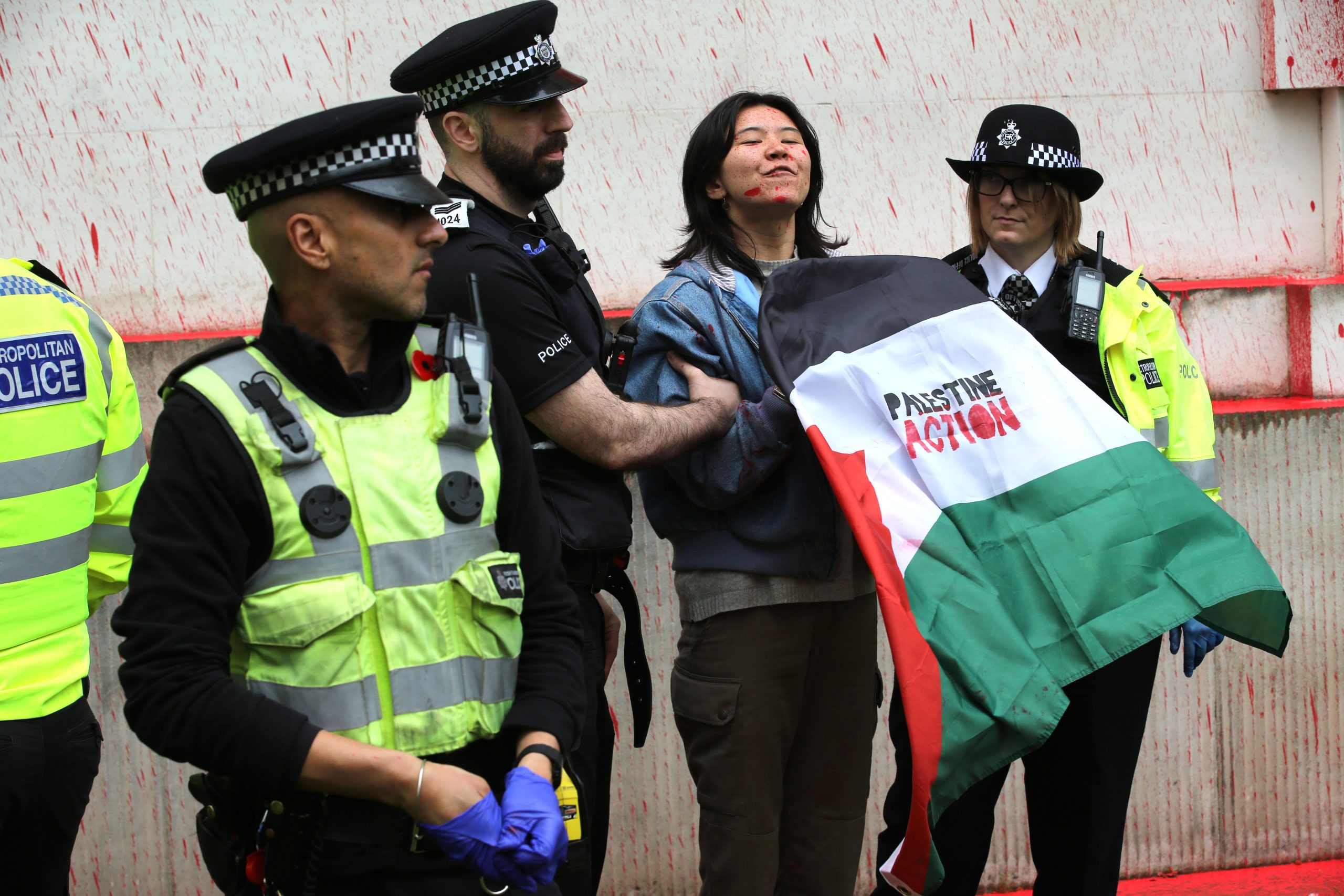Here we share the reflections of a Jordanian anarchist on the ongoing popular mobilizations that have gripped Jordan beginning on May 30, 2018, as a response to tax-reform measures proposed by the State in accordance with International Monetary Fund (IMF) demands.
As soon as authority was born, it developed its most dangerous habit: creating scenarios where it appears as if any move the people would take can be against people’s own interests, taking them a step away from their aspirations instead of making them advance. Helpless masses who plead for justice from their rulers and feel grateful when given the least have always been the best nation example for authority, every authority.
It is similar to chess, when a player employs some tactics that can put the opponent in “zugzwang,” where the best move is not to move. However, what works for chess does not work in the fields. Chess is focused on the king, but real streets are all about the people. In the streets, people would die to achieve justice for themselves or for their neighbors. War, on the other hand, is what harshly resembles chess, where ordinary people die helplessly to protect the ruler. That’s why authority–when its control over fields falls–has no problem in turning public squares into battlefields.
And that’s exactly the position we thought we were in after 7 years of the Arab Spring. We, as ordinary people, lost part of our hope and called that “maturation.” Our appreciation for security grew and consumed our sense of adventure and our will to be free at any cost. Seven years of witnessing people on the other side of the northern borders being slaughtered [i.e., in Syria] have made a lot of us slow down, and accept all the flaws that are ruining our lives, from corruption to mismanagement to wasting public money.
But when things went beyond the limits, people moved spontaneously, without the need for any model to follow this time. In 2011 we were influenced by Tunis and Egypt and sometimes we tried to copy their examples. Our circumstances [in Jordan] were not mature enough, but we were driven by the wave. But this time it is essential and real. We have developed our own model that was born from our own context, our own details, and our own fabric. The Professional Associations had a leading role at the beginning of the events, especially with their refusal of the proposed income tax law.
However, Jordanians all over the country filled the streets without being limited to the sectors that the associations can normally influence. The moves were highly civilized and self-regulated. And furthermore, people felt eager to discuss with each other the details of the income tax law and the mechanisms of pricing fuel products in Jordan: two main reasons for the protests. People of different genders, backgrounds, and ages engaged in such dialogues in public squares and on social media, thus reflecting how serious people are this time about being fully aware of what they are demanding and being able to propose their alternatives for managing the country without fear.
Another positive observation is that one could barely find people accusing each other of treason or making doubts about the origin of the movement as was the case in 2011, where regional events divided the people into different sectors, making it easier for the authorities to move in and ruin the protests.
After days of continuous protests, the government had to resign under the pressure of the protests, while the new–unfortunately also appointed–government promised to reconsider the income tax law and fuel-pricing mechanisms, an achievement to commend the people for, but still not enough for the people who are not showing naive consent with the authorities’ moves. “For the first time, we as people made the move and the government had to respond, and we should not lose this strong position.” This is how a young protester replied to my question about whether we should stay in the streets after the government resigned.
During the 7 past years, and concerned for security, many Jordanians tried to give the authorities a chance, assuming that a “good authority” can give us our daily bread, only by being asked politely to do so. But during the last 7 days, we all agreed implicitly that the best bread is the bread we bake ourselves, with no need for permission from any authority on earth.
Mohammad Abdel Qader Alfar
This text was first published by the Black Rose Anarchist Federation
Photo Courtesy Raad Adayleh/AP








